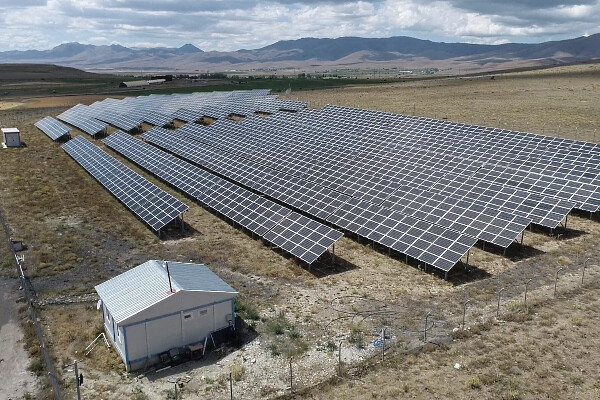
Baku, Azerbaijan – Despite possessing vast renewable energy potential, Azerbaijan’s transition away from fossil fuels remains sluggish, overshadowed by its longstanding reliance on oil and gas. While the nation boasts significant wind and solar resources, particularly in the Caspian Sea and the Aran region, progress in developing these alternatives is hampered by state-centric policies and a reluctance to relinquish control over the energy sector.
Azerbaijan's offshore wind capacity in the Caspian Sea is estimated at a staggering 157 gigawatts (GW), far exceeding its current total power capacity of 8 GW. The sun-drenched Aran region offers similar promise for solar energy. However, these resources remain largely untapped.
The government's commitment to renewable energy, exemplified by a 2030 target of 30% renewable power generation, contrasts sharply with the slow pace of project implementation. The 240-megawatt Shafag Solar Power Plant, announced in 2020, only commenced construction in late 2024, with completion expected in 2026. Similarly, offshore wind farm development in the Caspian Sea has yet to materialize, despite extensive feasibility studies.
Several factors contribute to this inertia. Primarily, the government's preference for maintaining control over the energy sector, mirroring its dominance in oil and gas, stifles private investment and market competition. Bureaucratic hurdles, an unclear legal framework, and a lack of competitive electricity markets further impede progress.
The 2021 renewable energy law, intended to liberalize the sector, still grants the state significant control through auction and tariff systems. This centralized approach contrasts with decentralized models in countries like Denmark, where local authorities play a crucial role in renewable project development.
Economic considerations also play a role. Azerbaijan's economy heavily relies on oil and gas revenues, which fund nearly half the state budget. Renewable energy projects, with their high upfront costs and long-term returns, are less appealing in comparison. Furthermore, the absence of robust incentives for businesses and individuals to adopt renewable solutions hinders widespread adoption.
Political factors are equally significant. The decentralized nature of renewable energy, which empowers local communities and businesses, challenges Azerbaijan’s authoritarian model. Unlike state-controlled oil and gas, solar, wind, and hydro projects could reduce the government’s leverage over economic activity.
Despite international pressure and commitments to "green energy" initiatives, Azerbaijan continues to prioritize fossil fuels. The government’s focus on natural gas exports to the European Union and plans to increase fossil fuel production over the next decade underscore this preference.
The vast renewable potential of the Caspian Sea and the Aran region presents a significant opportunity for Azerbaijan to diversify its energy mix and reduce its reliance on fossil fuels. However, realizing this potential requires a fundamental shift in government policy, embracing market liberalization, and fostering private sector participation. Without these changes, Azerbaijan risks missing out on its renewable energy future.
[Copyright (c) Global Economic Times. All Rights Reserved.]




























